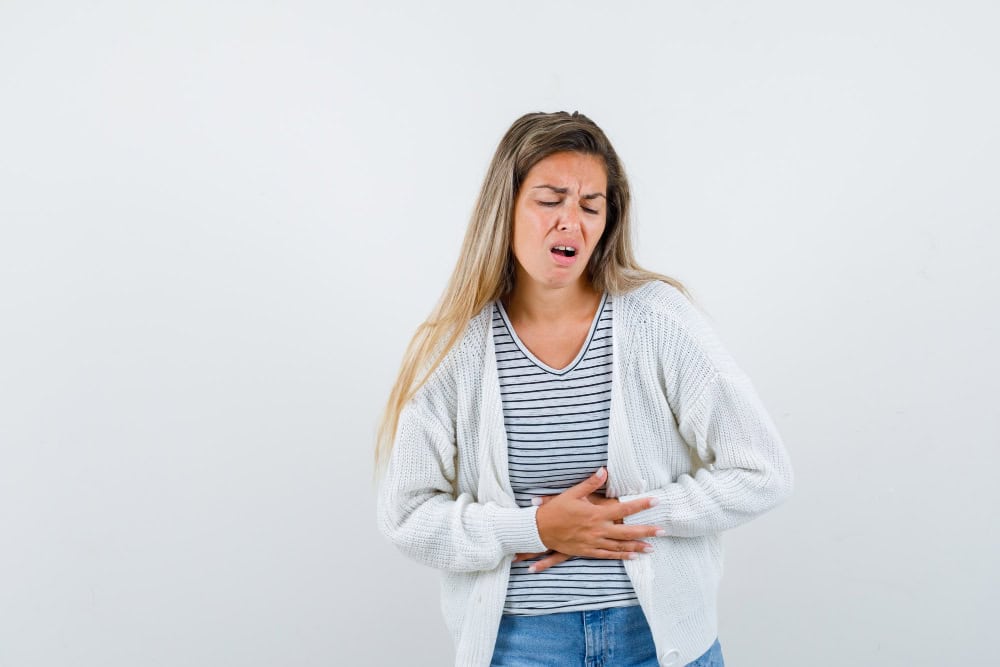Feeling Bloated ? Want to cure it?
Bloating and stomach pain are common digestive issues that can cause significant discomfort and distress. These symptoms can be triggered by various factors, including dietary habits, lifestyle choices, and underlying health conditions. This article explores effective strategies to alleviate bloating and stomach pain, emphasizing practical tips and lifestyle changes.
Understanding Bloating and Stomach Pain
Bloating is the sensation of increased pressure and fullness in the abdomen, often accompanied by visible swelling. Stomach pain can vary in intensity and duration, ranging from mild discomfort to severe cramping. Common causes include:
- Dietary Factors: Consuming large meals, fatty foods, carbonated drinks, and certain vegetables (like broccoli, cabbage, and beans) can lead to bloating and stomach pain.
- Digestive Disorders: Conditions such as irritable bowel syndrome (IBS), lactose intolerance, and celiac disease can contribute to these symptoms.
- Lifestyle Choices: Eating too quickly, smoking, and not drinking enough water can exacerbate digestive discomfort.
- Stress: Emotional stress and anxiety can impact gut health and lead to bloating and pain.
Effective Strategies to Alleviate Bloating and Stomach Pain
- Dietary Adjustments:
- Eat Smaller, More Frequent Meals: Consuming smaller portions throughout the day can help reduce the strain on your digestive system.
- Avoid Gas-Producing Foods: Limit intake of foods known to cause gas and bloating, such as beans, lentils, carbonated drinks, and certain vegetables.
- Reduce Fatty Foods: High-fat foods can slow down digestion, leading to bloating. Opt for lean proteins and low-fat options.
- Increase Fiber Intake Gradually: Fiber helps regulate digestion, but a sudden increase can cause bloating. Introduce high-fiber foods like fruits, vegetables, and whole grains gradually.
- Stay Hydrated: Drink plenty of water throughout the day to aid digestion and prevent constipation.
- Lifestyle Changes:
- Eat Slowly and Chew Thoroughly: Taking time to chew your food properly can reduce the amount of air swallowed and ease digestion.
- Avoid Carbonated Drinks and Chewing Gum: Both can cause you to swallow air, leading to bloating.
- Exercise Regularly: Physical activity helps stimulate digestion and can alleviate bloating. Aim for at least 30 minutes of moderate exercise most days of the week.
- Practice Good Posture: Sitting and standing up straight can help reduce pressure on your stomach and improve digestion.
- Manage Stress:
- Practice Relaxation Techniques: Activities such as yoga, meditation, and deep breathing exercises can help manage stress and improve digestive health.
- Get Adequate Sleep: Poor sleep can affect your digestion. Aim for 7-9 hours of quality sleep each night.
- Consider Probiotics:
- Probiotic Supplements: These can help balance the gut microbiome and improve digestion. Consult with a healthcare professional before starting any new supplement.
- Probiotic-Rich Foods: Foods like yogurt, kefir, sauerkraut, and kimchi contain beneficial bacteria that support gut health.
- Over-the-Counter Remedies:
- Antacids and Digestive Enzymes: These can provide quick relief for indigestion and gas.
- Simethicone: Found in many over-the-counter gas relief products, simethicone can help break up gas bubbles in the stomach.
- Seek Medical Advice:
- Consult a Healthcare Provider: If bloating and stomach pain persist, it’s important to seek medical advice. These symptoms can sometimes indicate underlying conditions that require professional treatment.
- Identify Food Intolerances and Allergies: A healthcare provider can help identify specific food intolerances or allergies contributing to your symptoms.
Conclusion
Bloating and stomach pain are uncomfortable symptoms that can often be managed through dietary adjustments, lifestyle changes, and stress management. By eating smaller meals, avoiding gas-producing foods, staying hydrated, and practicing relaxation techniques, you can alleviate these common digestive issues. If symptoms persist, consulting a healthcare provider is essential to rule out any underlying conditions and receive appropriate treatment.
